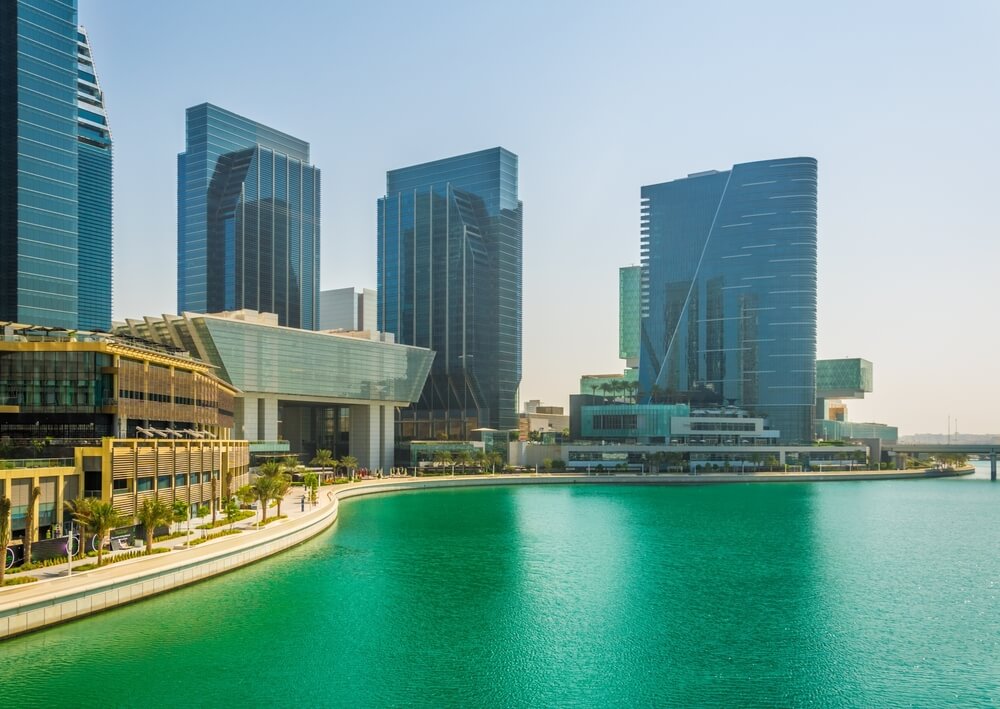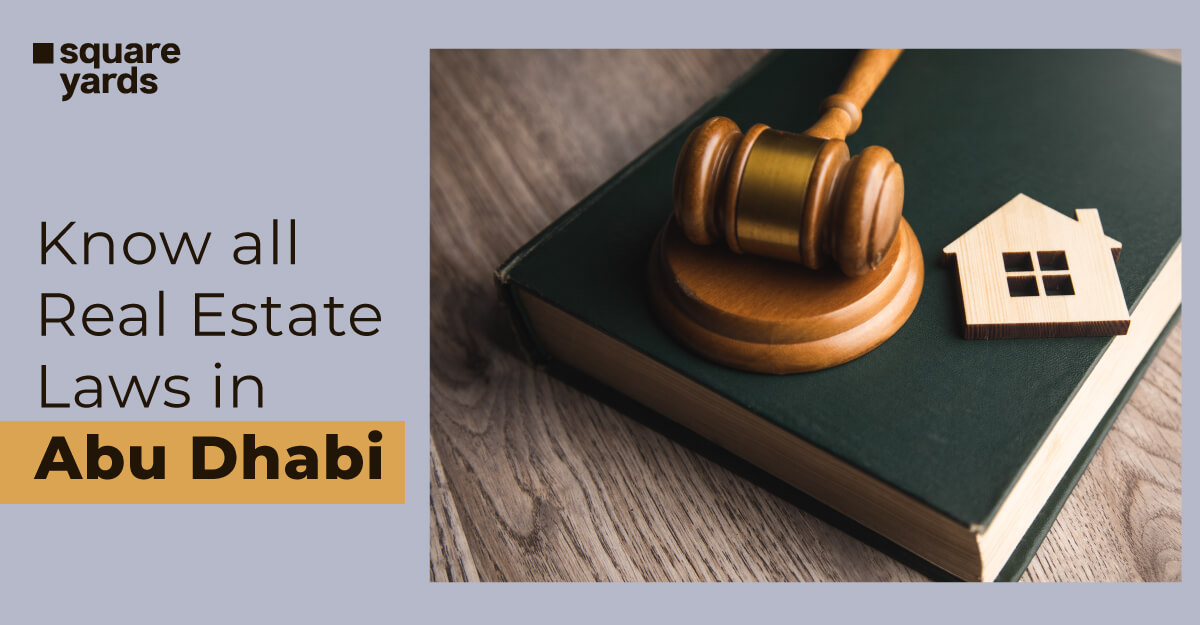The housing or real estate market has been on a major upturn, with the number of apartments and villas for sale in Abu Dhabi or rent going up more than ever. With this major influx, owners, landlords, and tenants must be well aware of the laws concerning the real estate market. This guide will give you all the information you need about the rental and Abu Dhabi property laws.
An Overview of The Real Estate Market in the UAE
In 2005, the real estate law Abu Dhabi saw an increase in regulation to make the system more transparent. This was done as a result of Law number 3. It included rules for aspects of the sector that weren’t covered earlier, like the breach of implementing the sales contract, failure to complete the project before the developer, etc.
These changes were brought in to protect the rights of the buyers and developers of real estate law Abu Dhabi and ensure complete transparency. As a part of some of these changes, UAE cities were allowed to sell or purchase commercial, residential, investment, or agricultural land assigned to them by the law on the condition that a minimum of 5 years must have passed before the land is allotted.
Additionally, under Law number 19 of 2005, distinctions were marked between UAE citizens, GCC nationals, and non-UAE/GCC nationals regarding property possession, development, leasing, and mortgaging. However, in 2015, the government introduced a new set of Abu Dhabi property laws regarding the real estate sector’s regulation, contributing to the economy’s expansion while attracting foreign investment.
Ownership Distinction in the Real Estate Sector

The nationality of an individual in Abu Dhabi property laws affects to what extent they can own property and sets limitations and restrictions on ownership. While citizens of the USE face no limits whatsoever, GCC nations (non-UAE citizens) and foreign nationals face different degrees of restrictions.
-
Freehold Ownership
Under this category, the owner gets complete and comprehensive ownership over their property, depending on their nationality or where it’s registered. While the Abu Dhabi government imposes no restrictions on individuals and businesses from owning property in the Emirates, those who aren’t UAE nationals are only allowed to own, rent, or mortgage property in specific allotted zones known as Investment Zones.
The various Investment Zones allotted in Abu Dhabi include –
-
- Al Reef
- Golf Gardens
- Al Bandar
- Al Zeina
- Mangrove Village
- Al Reem Island
- Al Manara
-
Jointly Owned Property
This is a type of temporary ownership. A leasehold refers to property leased from a freeholder for either 99 or 50 years, depending on the area. All leases need to be registered in the capital. Failure to do so can result in the lease being deemed non-enforceable, except for any private obligations between the parties involved.
Abu Dhabi offers two systems of lease registration :
-
- Tawtheeq – Meant for leases with a term shorter than four years.
- Tamleeq – Meant for leases with a period longer than four years.
-
Leasehold Ownership
Once again, a leasehold is a form of temporary right of ownership. Like jointly owned properties, all leases need to be registered in the capital and are offered in the two categories mentioned above, i.e., Tawtheeq and Tamleeq.
Licencing and Registration
All property rights and long leases must be registered with the Department of Municipal Affairs with its real estate register. Post this; the property owner is given a title certificate as proof of ownership. On the other hand, short leases must be registered with the Municipality of the national capital in its Tawtheeq in accordance with Law number 49 of 2018. The fee for the registration is set by the chief committee and needs to be between 1-4% of the transaction value.
The Abu Dhabi Global Market

The Abu Dhabi Global Market, set up in 2013, has been developing its infrastructure to be known as one of the most recognised centres with reliable regulatory rules, along with dispute resolution systems. For instance, the free zone has its own commercial and civil laws, which differ from federal regulations.
Laws Governing Real Estate Investments in Abu Dhabi

Three main Abu Dhabi Property laws govern the real estate sector in Abu Dhabi. These include the following:
-
- Law Number 3 of 2005 regarding the regulation of registering properties in Abu Dhabi.
- Law Number 19 of 2005 concerns the overall regulation of the real estate sector of Abu Dhabi.
- Law Number 13 of 2019 concerns the great estate property laws’ amendment.
Under Law Number 19 of 2005, which governs the real estate law Abu Dhabi, expatriates are allowed to possess property under four main systems:
-
- Ownership: This system allows expatriates to own property without land for up to 99 years. It also allows them to dispose of the property fully, whether apartments or villas.
- Musataha: This agreement gives the holder the right to construct a building, sell, lease, mortgage, or purchase a plot of land that belongs to the individual for 50 years. This right can also be extended with the parties’ consent for an additional term of up to 50 years.
- Usufruct: This is the right to use others’ property, provided its consent isn’t removed or damaged. It also gives them the right to use, own or manage the property (movable or immovable) or consumable or non-consumable property.
- Long-term lease: This is a lease given for no less than 25 years.
Implementing The New Property Law
Until the most recent developments in property laws in Abu Dhabi, real estate ownership was restricted to UAE citizens or GCC nationals. The new regulations allow non-nationals to purchase the land and not just the property present on the land. As per the amendment to Law Number 13 of 2019, foreigners are allowed to own real estate properties in the various Investment zones of Abu Dhabi.
According to the new laws, the rights to own real estate are limited to the following categories:
-
- Citizens (natural or legal)
- Public shareholding companies where the shares of non-nationals don’t exceed 49%
- Any individual or business on whom the Crown Prince or the Charmin of the Executive Council issues a decision.
Foreign Ownership of Property in Abu Dhabi
Foreign nationals are awarded certain rights over properties they own in the various Investment Zones in Abu Dhabi. These include possessions of flats and floors in buildings, usufruct, and Musataha. However, there can be exceptions to property rights outside these zones, but these are awarded on an individual basis.
Foreign nationals can also hold leases within the zones for up to 99 years. They can also hold leases to properties outside these zones, although it’s restricted to a tenure of 25 years.
Owners Associations
The new Abu Dhabi Property laws also include provisions for owners of the units in all the multi-unit real estate developments to create an association. This is responsible for the management of all common concerns among the owners.
Punishments For Failure To Adhere To The Real Estate Laws
-
- Any individual taking the role of a broker, association manager, or surveyor without being licensed will be punished by imprisonment or liable for a fine between 50,000 AED and 200,000 AED.
- Any person who fraudulently conducts off-plan sales or does not deposit the required amount into the escrow account will be fined somewhere between 100,000 AED and 2,000,000 AED.
- If an individual violates the executive legislation and provisions or is found not performing their obligations by the DMA, the license will be stripped by the DMA.
In Conclusion
Introducing the new laws and regulations has brought about much-needed improvements and benefits for people of residential categories in the UAE. While the rules are still being implemented, factors such as instability in the global markets, and fluctuating oil prices, among other geopolitical issues, are expected to be consistent challenges. However, the laws are making it easier for foreign nationals to own, rent, or lease property in the UAE, which is bound to increase foreign investment.
More Useful Articles For You :
| 9 Best Areas For Family in Abu Dhabi | Best Place For Family in Abu Dhabi |
| Real Estate Laws in Dubai | Real Estate Laws in Dubai |
| Tips For Buying off-plan Property in Dubai | Buying off-plan Property in Dubai |
| Guide To Abu Dhabi Real Estate | Abu Dhabi Real Estate |
Frequently Asked Question (FAQs)
GCC citizens are not allowed to own land in the allotted Investment Zones; in comparison, foreign individuals or expatriates can own, lease, sell, or mortgage property in these zones.
Yes, foreign nationals or expatriates can own land in certain designated Investment Zones allotted by the Abu Dhabi government.
RERA, or the Real Estate Regulatory Authority, is the body that governs jointly-owned property in Abu Dhabi.
Shakeout City is possibly among the cheapest places to live in Abu Dhabi.
Purchasing real estate in Abu Dhabi may grant the investor a residence permit if the property's value is at least AED 1 million and the property is completed upon purchase.
Abu Dhabi is the richest city in the world, with a per capita income of USD 130,000, whereas that of Dubai is USD 44,000. What are the legal requirements in real estate?
Can foreigners own property in Abu Dhabi?
What is Rera in Abu Dhabi?
Which is the cheapest area to live in, Abu Dhabi?
Can I get UAE citizenship by buying a house?
Is Abu Dhabi richer or Dubai?




